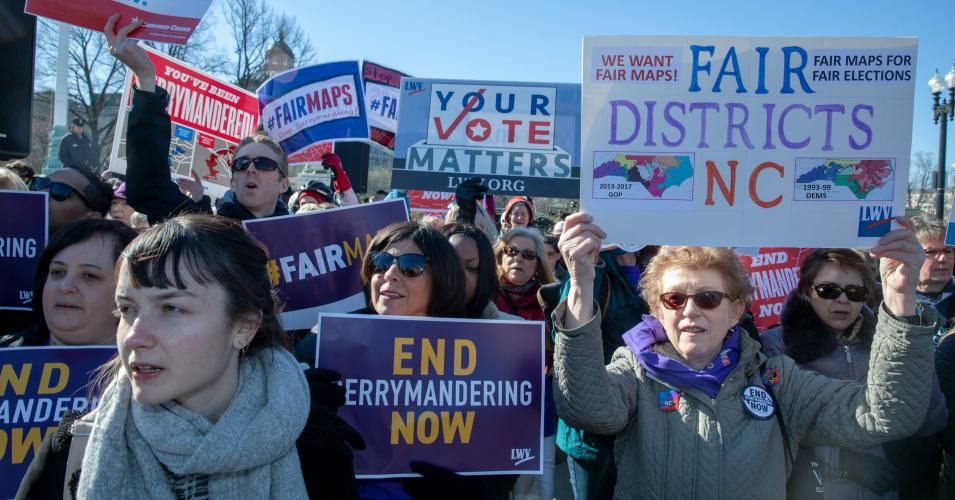words by Charles Brooks
The significance of the Black vote is on full display as both Joe Biden and Kamala Harris make their final case and last push for Black voters, particularly in the battleground states. The path for Biden to reach the White House runs through these very same battleground states in Black America. The Biden-Harris team needs to reach those areas with large Black voters like Detroit in the battleground state of Michigan, Philadelphia in Pennsylvania, Milwaukee in Wisconsin and Cleveland in Ohio. But the Democratic Party nominee is faced with the daunting task of having to reach the Black vote in numbers unseen since 2008 and 2012 when Barack Obama was elected.
Right now – if you trust the polling numbers - five national polls have Biden ahead by at least 10 points over President Trump even though there’s been just a bit of slippage in these polls in the last month. The polling in battleground states show a slightly different picture where Biden holds a steady but single-digit lead over Trump.

While Black America clearly supports the Biden-Harris ticket, there’s still this stubborn lack of enthusiasm that has dogged Candidate Biden since the primaries. Again - if you trust and believe the polling, they point out these same challenges Biden has with Black voters under the age of 30. The American University Black Swing Voter Project found Black support for Biden for this age group at 47%. In another poll by CBS/BET found similar numbers in this age group with 42%. But Biden’s issues for the Black vote doesn’t stop with the lack of voter enthusiasm. There’s still the age-old sentiment about the Black vote being taken for granted that Harris’ addition to the ticket apparently hasn’t resolved. We are seeing this issue particularly in those areas that are absolutely crucial to a Biden upset in Detroit, Philadelphia, and Milwaukee. .
The Biden-Harris campaign’s pursuit of the Black vote includes establishing outreach programs for Black voters like
Shop Talk discussing the issues facing Black men,
Make it Happen Mondays, where Black businesses and business owners discuss their needs; and there’s their
Sister to Sister program dedicated to Black women. In fact, the 2020 elections will mark the largest ad buy and paid outreach by the Democrats for Black media. Kamau Marshall, the Director of Strategic Communications for the Biden campaign told
Black Enterprise that it’s imperative to show Black Americans the damage Trump has caused to them during his first term. “No I think part of our job is to remind the Black community of this president’s incompetence resulting in a large number of deaths in the Black community related to the coronavirus and the economic effects of the virus for Black Americans. The man has also talked bad about Nelson Mandela and John Lewis and former President Obama, so what we have to do is show people who he is.”
But does the anti-Trump message provide enough motivation to generate the much-needed vote totals to serve Trump his eviction papers via ballot box? Why not highlight features of the Biden plan for Black America like the billions he wants to spend on affordable housing and Historically Black Colleges and Universities (HBCU)? Or his plan to forgive student loans and have free college tuition? What about the $1.3 trillion he wants to spend on infrastructure and jobs? Or his proposals to finally end the crack versus powder disparity, ending cash bail, or ending the use of private prisons? Despite a plan that covers areas such as healthcare, criminal justice, wealth/income inequality, education, housing/homeownership, voting rights and climate – their campaign message seems to be framed more around an anti-Trump message that includes a much-needed return of normalcy and civility to the White House. But is that enough?
Now in the throes of the last hours of the 2020 election, the Biden-Harris team is making a strong final push for Black voters with drive-in rallies in Flint and Detroit, Philadelphia, Cleveland, with former president Barack Obama joining Biden at a drive-in rally in Miami, Florida. The Biden-Harris team also made several visits to Florida, with Harris making three visits herself to South Florida including, Miami Gardens - the city with the largest Black population in Florida, as Biden made visits Fort Lauderdale and Tampa to rally Black voters.
Well, come election night, we’ll see if their anti-Trump campaign message prove to be just enough to thrust Biden-Harris to the White House or will the aftershocks of defeat bring more contentious debate around the missed opportunities in 2020...and the lessons wasted from 2016.
Further Reading:
Live Election Results, from the Guardian
Preliminary Exit Polling, from the New York Times
Preliminary Election Results, from CNN
The Black electorate could decide the 2020 election, from The Guardian
Related Posts
Will Trump’s racism crush his strategic appeals for Black voters?
Biden picks Kamala Harris - can she be the difference the Democrats need to win in November?
Who will Biden pick?
Will Biden take Black voters for granted?
Please support and visit The Brooks Blackboard's website, our INTEL page, OPEN MIND page, and LIKE and FOLLOW our Facebook page.
.png)












